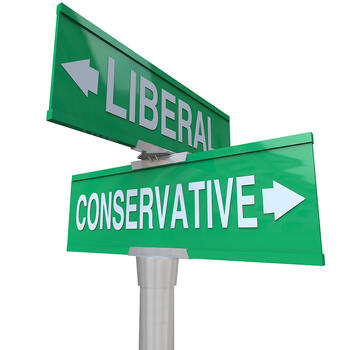
The Millennial Generation (born 1982-2003) is the cohort most in favor of using the federal government to promote economic stability and equality since the GI Generation of the 1930s and 1940s. The attitudes of Millennials were heavily shaped by the protected and group-oriented way in which they were reared and their experience of feeling the full brunt of the Great Recession as they emerged into adulthood.
As a result, the biggest political story of the first half of the 21st century may well be the extent to which the largest American generation ever retains its economic liberalism and thereby shapes the direction of public policy in coming decades. If history is any guide, much of that story’s plot will be written during the next four or five years.
Millennials deserve America’s sympathies for the disproportionate impact the Great Recession has had on their generation. According to a recent Pew Research Center survey, a clear plurality (41%) of Americans think that young, rather than middle-aged (29%) or older (24%) adults are having the toughest time in today’s economy. And they are right. Last year, the unemployment rate for 18-24 year olds (16.3%) and 25-29 year olds (10.3%) was well above that of those 35-64 (7%). Even among those 18-24 year olds fortunate enough to find full-time employment, real median weekly earnings were down by six percent over the previous four years. Not surprisingly, the weak economy has had a profound impact on the personal lives of Millennials. Nearly half (49%) say they have taken a job (often part time) just to pay the bills. A third (35%) have returned to school, something that may pay benefits in the long term, but is at the expense of current earnings. About a quarter have taken an unpaid job and/or moved back in with their parents (24% each). About one in five have postponed having a baby (22%) and/or getting married (20%). Less than a third (31%) say that they earn or have enough money to lead the kind of life they want.
Their experiences with the Great Recession have only reinforced Millennials’ support for economically activist government. Last November, when Pew asked whether Americans preferred a larger government that provided more services or a smaller government that provided fewer services, Millennials opted for a bigger government over a smaller one by a large 54% to 35% margin. By contrast, 54% of Boomers (born 1946-1964) and 59% of Silents (born 1925-1945) favor a smaller government. .
In addition, a majority of (55% to 41%) Millennials favored a greater level of federal spending to help the economy recover from the recession rather than reducing the federal budget deficit. Millennials also continue to support governmental efforts to lessen economic inequality; 63% agreed that government should guarantee every citizen enough to eat and a place to sleep. Consistent with their overall attitudes toward the size of government, the two oldest generations—Boomers and Silents—favored reduced spending and a more limited government role in promoting economic equality.
The tendency of people to retain their political viewpoints and preferences throughout their lives suggests that once they are set, Millennial Generation attitudes toward government’s proper role in the economy will persist for decades. This conclusion was recently confirmed by economists Paola Giuliano and Antonio Spilimbergo. In a longitudinal analysis of survey data collected annually since 1972, they found that experiencing an economic recession during one’s “formative” years (18-25 years old) led Americans to favor “leftist” governmental policies that would “help poor people” and lessen “income inequality.” These attitudes were not influenced by experiencing a recession either before or after the formative years and remained in place even when controlled for demographic variables such as sex, race, and social class. However, the same data suggested that the deeper and more sustained the recession, the lower the level of confidence survey respondents had in governmental institutions such as Congress and the presidency.
The success of governmental action in dealing with the Great Depression in the 1930s and World War II in the 1940s put the GI or Greatest Generation on the path of lifelong support for governmental activism. After the nation’s victory over the Axis and the economic boom that followed, positive perceptions of government and political efficacy were virtually universal among Americans. Today, although America has begun to shake off the worst aspects of the Great Recession, unemployment remains stubbornly high and growth rates remain below the level needed to make dramatic dents in unemployment rates, especially among Millennials.
So far Millennial beliefs in activist, egalitarian government policies have not been shaken by the slow pace of the recovery or what some may perceive as an inadequate federal response. The extent to which those attitudes persist in future decades, when Millennials will represent over one out of every three adult Americans, could depend on how well the government deals with the economic challenges the nation faces in the years just ahead.
Morley Winograd and Michael D. Hais are co-authors of the newly published Millennial Momentum: How a New Generation is Remaking America and Millennial Makeover: MySpace, YouTube, and the Future of American Politics, named by the New York Times as one of their ten favorite books of 2008.












